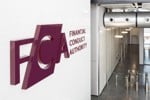Nissan believes that after five years of use the battery pack in its Leaf electric vehicle (EV) will costs “hundreds, not thousands” to replace.
Nissan believes most people will use their Leaf for five years and the Leaf’s battery will still have a useful battery life of 80% range after that period (based on 12,000 miles year).
There has been debate about the Leaf’s prospects as a used vehicle, with many claiming a used EV market will be impossible due to limitations with current technology.
Simon Sproule, CVP Nissan global marketing communications, said: “There’s been a lot of debate online about the replacement cost of the battery and it’s very unlikely that anyone’s going to have to replace the entire battery pack.
“Typically people will need to replace modules and we can open up the battery pack and do that.
“There’s been a lot of chatter online about tens of thousands of dollars or euros to replace a whole battery pack, but really you want to focus on the modules and these will be in the hundreds, not the thousands.”
Sproule also addressed comments about the lack of charging infrastructure to support the EV market, saying it was a classic chicken and egg scenario with Nissan and other manufacturers having to bring products to market before a full infrastructure can be established.
He dismissed the idea that anyone using the car was likely to do enough miles to require fast charging every day and therefore degrade the battery’s life faster than expected.
He said: “If someone uses the fast charging system every day, they would be doing more than 200 miles and on an annual basis that would be over 70,000 miles.
“There aren’t many people that drive 72,000 miles a year in any car so it’s an unlikely scenario that someone would be fast charging every day. The constant heavy recharge cycle is the extreme and we engineer for the extreme but the reality day-to-day will be nowhere near that.”
The high price of the Leaf is also still an issue with EV detractors.
Sproule said: “Electric vehicles have always traditionally been very expensive and the main part of the cost is the battery.
“What we’re trying to do is by getting a lot of vehicles out there, you then reduce the cost, over time, of the batteries.
“Now we’re seeing that there are a lot of incentives in the market to help the early adopters. But our business model is based on lowering the price of the vehicle, lowering the price of the battery and using scale to do that.”














Login to comment
Comments
No comments have been made yet.